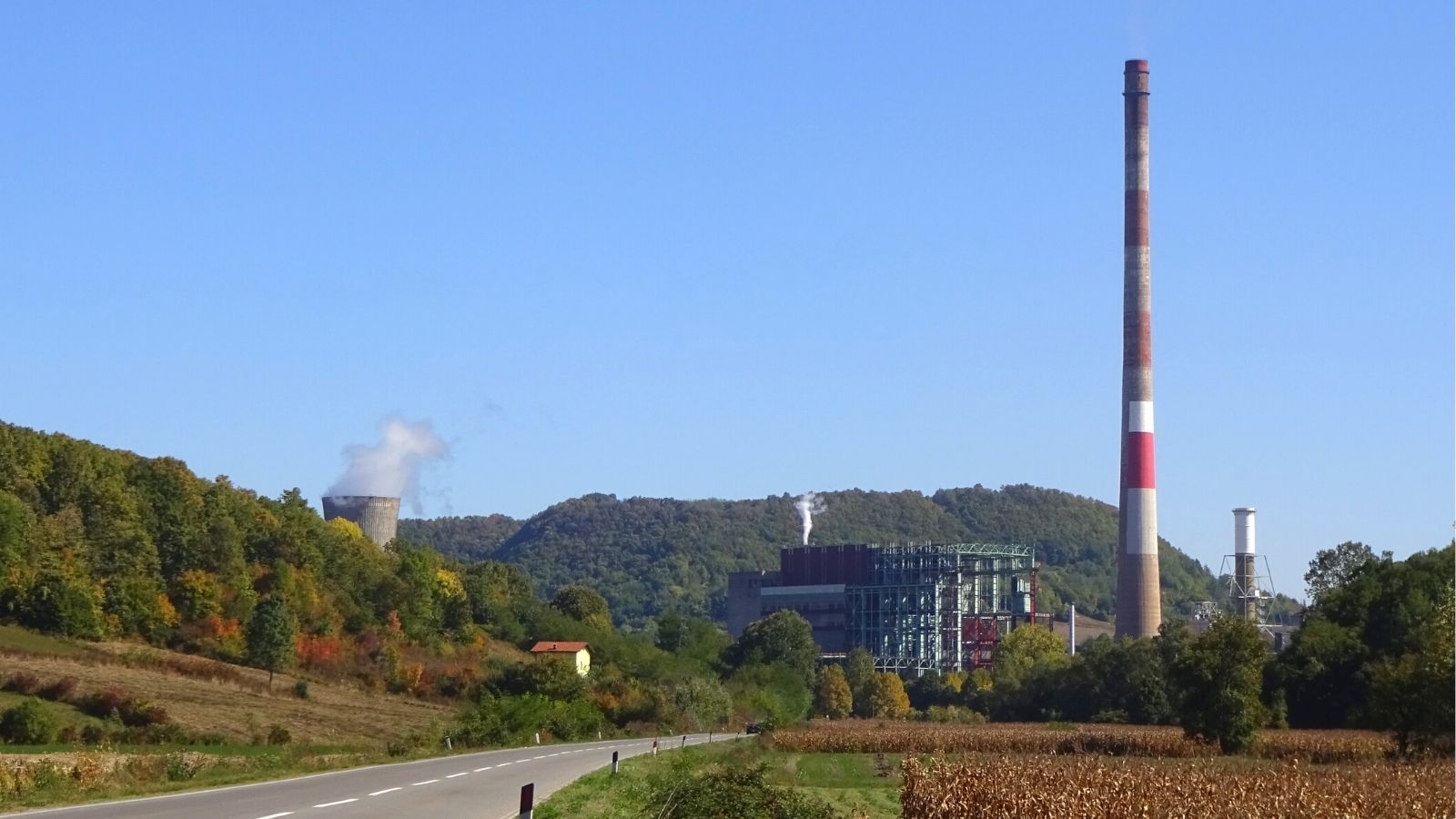Ugljevik power plant, Bosnia and Herzegovina
Commissioned in 1985, the 300 MW coal power plant in Ugljevik, Bosnia and Herzegovina, has become famous for emitting more sulphur dioxide than all of Germany’s coal power plants in 2019.

Stay informed
We closely follow international public finance and bring critical updates from the ground.
Background
To put things in perspective, for every GWh of electricity generated in 2019, Ugljevik emitted 50 tonnes of sulphur dioxide, that is 50 times more than EU’s worst polluter, Bełchatów in Poland, which emitted 1.1 tonnes of SO2/GWh.
The problem is not new, but the paradox is that a financing contract for installing desulphurisation (de-SOx) equipment at Ugljevik was signed more than 14 years ago, and the installation is still not functioning.
Financed by a loan from the Japan International Cooperation Agency (JICA) signed back in 2009, works on the de-SOx equipment started only in 2017 and test operations began in December 2019. It seemed likely that in 2020, SO2 emissions would be significantly lower, finally justifying the EUR 85 million investment.
However, in February 2020 technical problems were reported. The plant’s dust filters, overhauled more than three years ago by the Czech company Termochem at a cost of around EUR 10 million, were faulty, and their proper functioning is reported to be a precondition for desulphurisation. The plant operator spent an additional EUR 100,000 on a study that would show how to address the problem.
In 2021, RiTE Ugljevik, the power plant operator, sought ‘technical assistance’ to obtain the operating permit, adding an extra EUR 100,000 to the costs of this project. The contract was awarded to a company owned by the mayor of Zvornik, raising a host of questions on why the publicly-owned utility RiTE Ugljevik is not capable of obtaining an operating permit itself.
The plant finally obtained an operating permit for the desulphurisation equipment in November 2021. However, its 2024 sulphur dioxide emissions of 112,943 tonnes higher than those in 2021 (86,774 tonnes). Since 2018, when the Large Combustion Plants Directive entered force under the Energy Community Treaty plant’s emissions have increased instead of decreasing. The operator admits that the de-SOX is not working mainly because it is an ‘economic burden’, and also due to a lack of disposal facilities for the gypsum that results from the process.
Out of all Bosnia and Herzegovina’s coal power plants, Ugljevik’s emissions caused the most days of asthmatic symptoms in children, with over 12,000 days in 2020. This is equal to 48 per cent of all such impacts from the country’s coal power plants which are included in the National Emissions Reduction Plan. Ugljevik is also responsible for the highest number of cases of bronchitis in children due to dust emissions, and of hospital admissions because of cardiovascular and respiratory symptoms, with 1,142 cases of the former and 469 of the latter in 2020.
Latest news
Fear and fossil fuels in Romania
Blog entry | 11 February, 2026A draft law supported by thirty members of the Parliament, aims to roll back Romania’s coal phase out and, at the same time, delivers a masterclass in manipulation.
Read moreJoint NGO statement: New EU budget must ensure dedicated funds for environmental protection and just transition in the Western Balkans
Press release | 28 May, 202568 civil society organisations have today issued a joint statement calling on the EU to ensure dedicated funds for environmental protection and just transition of coal-dependent regions in the Western Balkans in the post-2027 EU budget.
Read moreConcerns raised over new coal mining project in light of North Macedonia’s decarbonisation goals
Blog entry | 27 May, 2025CEE Bankwatch Network and Eko-svest have recently raised serious concerns regarding a proposed coal mining project in North Macedonia. The plan to open a new lignite mine in the Pelagonija region comes as a surprise, as the region is already affected by three other operating mines and the project contradicts the country’s coal phase-out commitments.
Read moreRelated publications
Priority measures for energy efficiency in buildings: Discussion paper on energy poverty, energy sufficiency and deep renovation in the Western Balkans
Discussion paper | 27 January, 2026 | Download PDFIn the Western Balkans, buildings use more than 40% of energy, and they are poorly insulated, inefficient and reliant on outdated heating systems, leading to energy waste.
Implementation of the Climate Investment Funds Accelerating Coal Transition Investment Plan for North Macedonia, with recommendations for 2026
Briefing | 19 December, 2025 | Download PDFThis briefing takes a closer look at the Annual just transition implementation plan 2025 and gives several recommendations for the 2026 update.
Beyond the scoreboard: Energy sector transformation under the Reform and Growth Facility for the Western Balkans
Report | 5 December, 2025 | Download PDFThis analysis offers an overview of the energy-related reforms from Albania, Kosovo, Montenegro, North Macedonia and Serbia and then evaluates the countries’ progress.
